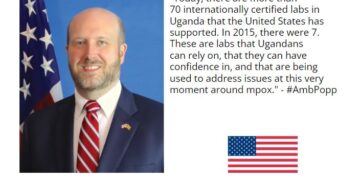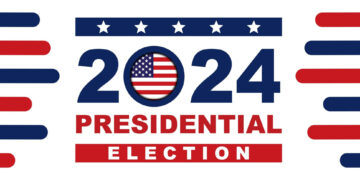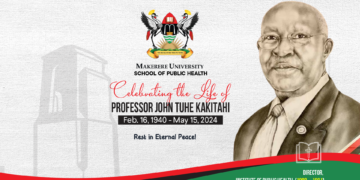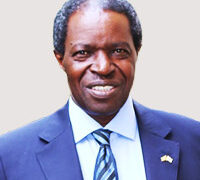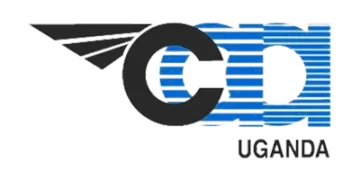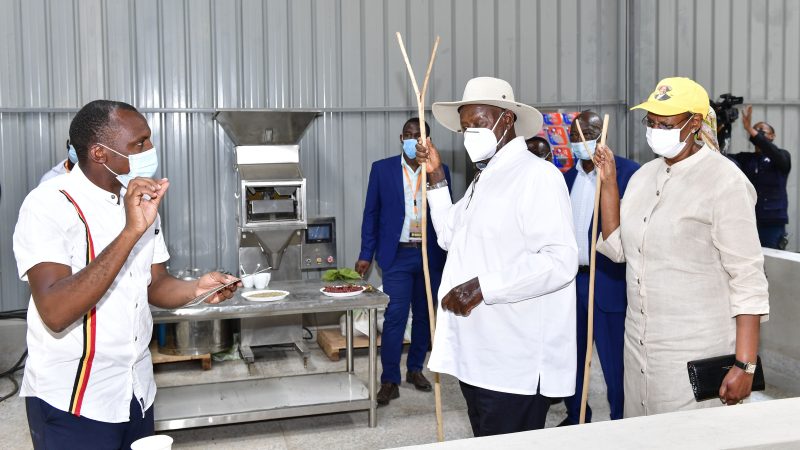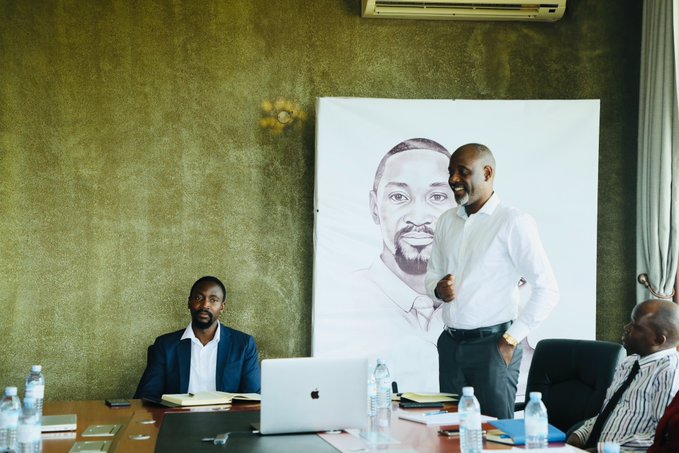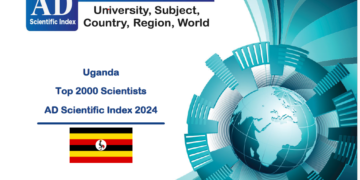Kampala, 17th January 2024: The Coffee Investment Consortium Uganda (CICU) has defended its member who has become a subject of social media criticism for allegedly misappropriating billions of money meant for coffee development in the country.
In a five-page statement posted on its website that this desk has seen, CICU has provided a detailed account of the utilization of the grant received from the government, shedding light on the impactful strides made in the Coffee Value Addition Project and the outcomes that have been achieved.
The clarification follows a letter to CICU by the Minister of Science Technology and Innovations, Hon Monica Musenero on Tuesday in which she demanded accountability of the money so far disbursed to the consortium.
But in a series of damning accusations on the microblogging social media platform X (formerly Twitter), former Vision Group CEO and coffee farmer, Robert Kabushenga, blamed Mr. Nelson Tugume, a CICU member under the Inspire Africa coffee brand, for involvement in coffee-related projects, bringing into question the legitimacy and transparency of the initiatives.
The first accusation targeted Mr Tugume is focused on Tugume’s alleged use of taxpayers’ money to build a private “factory for instant coffee” in the Ntungamo District of Western Uganda.

Mr. Kabushenga raised questions about the likelihood of its execution and highlighted the potential conflict of interest if it turns out to be Tugume’s private business. He also points to a previous issue raised in the Auditor General’s report regarding the use of public funds, adding another layer to the controversy.
Kabushenga alleges that a substantial amount of money (UGX 9.6 billion) was received from the Office of the Prime Minister (OPM), as indicated in the Auditor General’s report. Robert encourages the public to scrutinize the report, suggesting that the funds may not have been appropriately managed or accounted for.
In another accusation, Mr. Kabushenga accuses Tugume of allegedly obtaining hundreds of thousands of dollars from Mastercard Foundation through Private Sector Foundation (PSFU) Uganda and refusing to repay or provide an account of the funds.
Kabushenga further accuses Tugume of accessing a further $20 million grant that was passed on to him without significant scrutiny, emphasizing the need for a thorough investigation into the dealings of Tugume and his associates.
Kabushenga concludes that the coffee value addition story is a scam orchestrated by individuals who aim to dismantle and hijack the sector for their benefit, leaving farmers with little to gain.
He calls for awareness and scrutiny, declaring that the truth must be known for the sake of future generations.
CICU Hits Back
In a five-page statement, CICU hit back at Kabushenga this afternoon saying that his exposition is a total misrepresentation of facts.
“ Over the last couple of days, a mixture of outright falsehoods and selective facts have surfaced online regarding the Coffee Investment Consortium Uganda (CICU), our members and members of our Founding Council as well as the Coffee Value Addition Project being implemented through the Science, Technology and Innovation Secretariat at the Office of the President (STI-OP).,” writes CICU CEO Tonny Miiro Kibuuka.

Mr. Kibuuka adds that the deliberate misrepresentation has fueled further speculation and spinoffs in online and offline media, hence sparking off, unnecessary anxiety amongst our stakeholders in the coffee value chain, in government, and especially the taxpayers who are the funders and intended beneficiaries of this project.
“Well aware of the need to be transparent to our stakeholders, CICU would like to clarify several issues that have since been raised by our stakeholders since the falsehoods and selective facts cropped up online.,” he writes before warning that; “CICU has resisted and shall continue to resist overbearing tendencies from any party that seeks to deviate or bully us from our purpose.”
How the Grant was Shared
Mr. Kibuuka explains that the grant of UGX 31.45 billion (USD 8.5 million), received from the Science, Technology, and Innovation Secretariat at the Office of the President (STI-OP) in September 2023, was dedicated solely to the Coffee Value Addition Project for CICU and its members. The disbursement was allocated according to the roles of various entities in the Eco Hub model, as outlined below:
1. Tertiary Hub – South Ankole Region Shs. 23,755,678,000
2. Secondary Hub – Central Region Shs. 2,494,000,000
3. Secondary Hub – Eastern Uganda Shs. 1,135,100,000
4. Secondary Hub – Greater Ankole Shs. 1,135,100,000
5. Secondary Hub – Kigezi Region Shs. 1,135,100,000
6. Secondary Hub – Rwenzori Region Shs. 259,000,000
Mr. Kibuuka explains that through this grant intervention, the Coffee Ecosystem in Uganda has achieved significant milestones, showcasing the positive impact on various aspects of the coffee value chain.
Project Implementation Status
Mr. Kibuuka further explains that the development of the largest coffee value addition facility under the south Ankole Hub in Ntungamo is so far the greatest achievement. This facility under Tugume’s Inspire Africa Coffee brand, has a full capacity output of close to 10,000 MT of roast and instant coffees.
He says the grant has boosted five Secondary Hubs which have been enhanced for production, and 15 Primary Hubs with a mobilization capacity estimated at 20,000 MT of FAQ (Fair Average Quality).
He adds that reaching around 200 farmers in regions such as Kigezi, Mitooma, Rwenzori, and Kween, despite the funds being received at the end of September 2023, is a great achievement because they have reported significant progress in crucial areas such as crop financing, coffee purchasing, and post-harvest handling equipment.
Mr. Tugume’s Factory
Mr. Kibuuka explains that given the misinformation campaign surrounding Mr. Tugume’s Tertiary Hub, the nature and scope of its grant allocation, particularly to Inspire Africa (The Tertiary Hub), was used to set up a modern precision technology on a soluble coffee plant, encompassing freeze and spray dry methods.
“The allocation covered infrastructure development, warehousing, and equipment for various coffee products. The funds were utilized to establish a tertiary hub for producing standardized quality Uganda Single Source Origin high-altitude roasted coffee products at the Ntungamo hub under Inspire Africa Coffee Limited by the end of 2024,” he writes.

He adds that it is only infrastructural development, including roads and warehouses which are in progress because the equipment installation is still underway.
With its installation, the facility shall have a 300kg/Batch roastery, a Freeze Dry and Spray Dryer Soluble Coffee Processing Plant, and a Logistical capacity building, including the installation and testing of the green bean handling facility which has been accomplished.
He further reveals that Research and Development on products and branding are complete, with the production of packaging equipment pending UNBS certifications.
Who is CICU?
Established in 2021, CICU is a registered Private Sector company comprising Ordinary Members (founder coffee companies), Associate Members (strategic partners), and Affiliate Members (beneficiaries across the coffee value chain). With a vision of ensuring happy coffee farmers, CICU operates voluntarily, driven by a mission to support the weak in the coffee value chain.
The Coffee Value Addition Project
Hosted by the Ministry of Science Technology & Innovation, the project, a collaboration of private companies, aims to promote exports of value-added coffee and products. Implementing the ECO HUB model, CICU oversees Tertiary, Secondary, and Primary Hubs, as well as Enterprise Groups, ensuring end-to-end solutions to challenges in the coffee value chain.
Understanding the Eco Hub System
The Eco Hub system involves Tertiary, Secondary, and Primary Hubs, along with Enterprise Groups, collectively addressing post-harvest handling, bean quality, pricing, and market access. With a vision for expansion by 2030, CICU envisions a network of hubs supporting the production of 54,000 MT of coffee.








